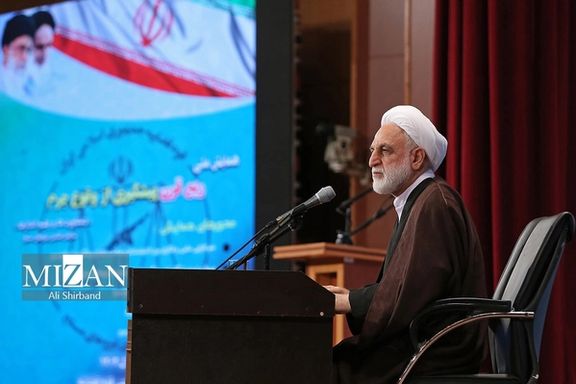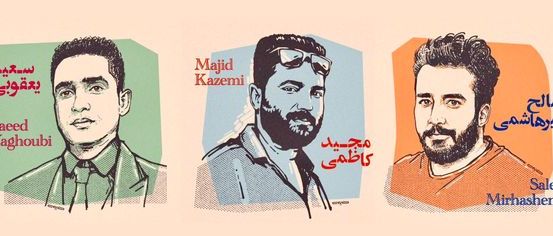'We Execute Those We Should' Says Iran’s Unflinching Judiciary

Amid global outrage over Iran's execution machine, the regime’s chief justice has defended the hanging of protesters, vowing to continue its killing spree.

Amid global outrage over Iran's execution machine, the regime’s chief justice has defended the hanging of protesters, vowing to continue its killing spree.
Islamic Republic Judiciary Chief Gholamhossein Mohseni Ejei said Tuesday "The [death] sentences of those [protesters] who were/are supposed to be executed for their crimes during the riots have either been or will be carried out without any consideration while ensuring full observance of legal procedures, justice and fairness."
Emphasizing that the sentences will be implemented “without any delay,” he also defiantly called on security and intelligence agencies to arrest women who are flouting mandatory hijab rules and to hand them over to the judicial authorities for “severe punishment.”
Accusing protesters and those unveiling in public of being connected to “the enemies,” Ejei emphatically vowed: “Be sure that these elements will be severely punished.”
In the Islamic Republic's jargon "enemy" is used to refer primarily to the United States and Israel, and sometimes to their allies, and recently every entity and individual who has expressed support for the current wave of anti regime protests.
“The enemies are trying to create a divide in our society by psychological operations and bombarding the minds of young people and by taking advantage of some existing weaknesses,” the chief justice said, claiming these 'enemies' are trying to divide Iranian society.
Since the early weeks of the nationwide protests ignited by the death of 22-year-old Mahsa Amini by hijab or ‘morality’ police in September, the staunch regime mouthpiece has repeatedly ordered judges to issue tough sentences to protesters and those flouting regime diktat.
"I have instructed our judges to avoid showing unnecessary sympathy to main elements of these riots and issue tough sentences for them while separating the less guilty people," he said in October. In April, he warned of strict punishment for women flouting hijab rules.
Following the death of Amini for "improper hijab," a growing number of women have been ditching their veils in public, risking arrest by defying hijab laws in public places such as streets, malls, shops, banks, cafes, and even airports with videos and photos surfacing online everyday describing scenes with women casting off their headscarves as the new normal in Iran.
The Islamic Republic has intensified its killing trend in recent weeks, fueling further protests across the country. At least 259 Iranians have been executed since January alone, according to the United Nations.

Amid a spike in executions since late April, on May 19, authorities arbitrarily executed three tortured protesters, Majid Kazemi, Saeed Yaghoubi and Saleh Mirhashemi who were unjustly convicted and sentenced to death in Isfahan (Esfahan).
The deaths brought to at least seven the number of protesters hanged since nationwide protests broke out in September 2022 following the death in custody of 22-year-old Mahsa Amini. The unrest posed the biggest internal challenge to the Islamic Republic since its establishment in 1979.
Earlier in March, Amnesty International said at least seven individuals in Iran face the death sentence in connection with protests, while dozens of others are at risk of being sentenced to death.
So far, around 750 civilians have been killed by security forces and at least 30,000 arrested. While many have been released, around 1,500 face criminal charges, and at least 80 detainees face the death sentence for the “moharebeh” and “corruption on earth”, Islamic-Arabic terms meaning to go against the will of God. Both carries the death penalty.